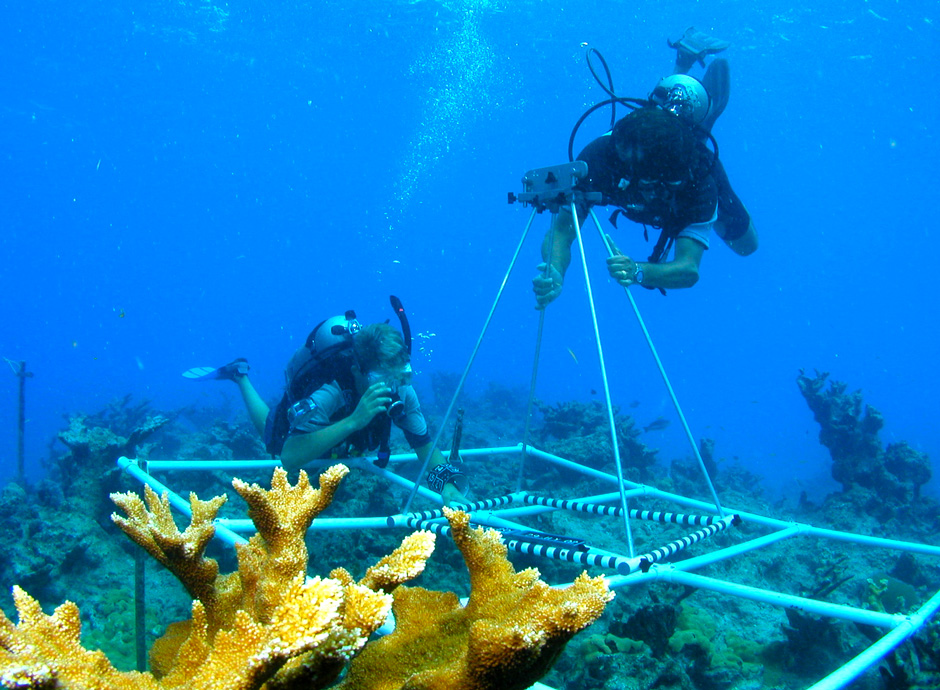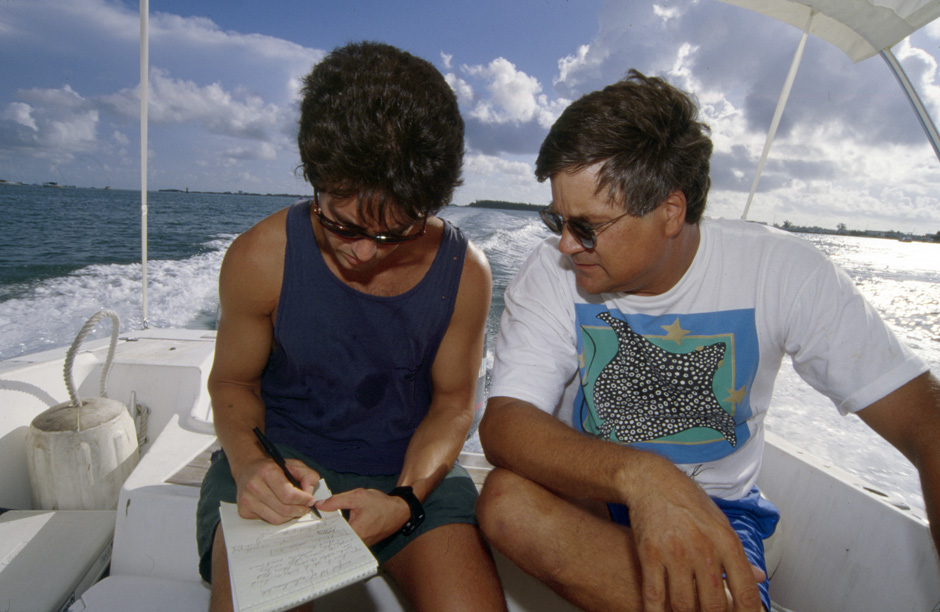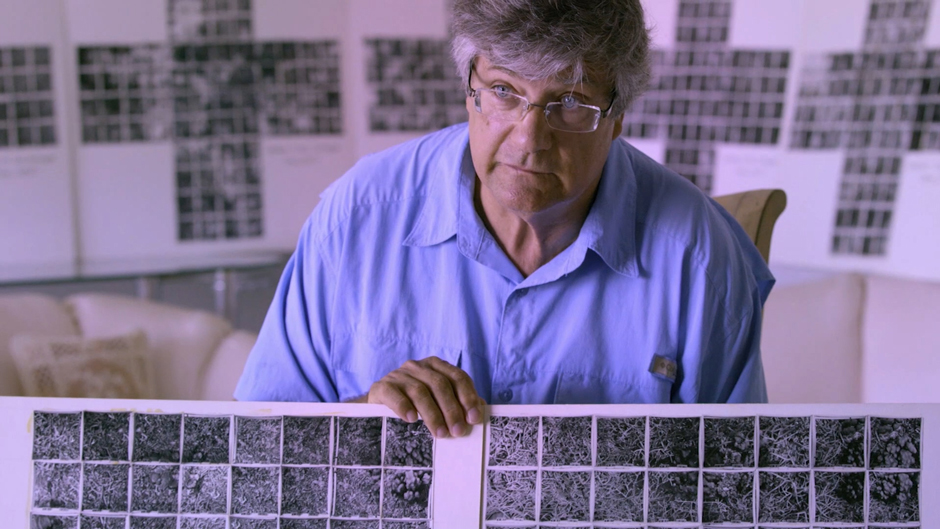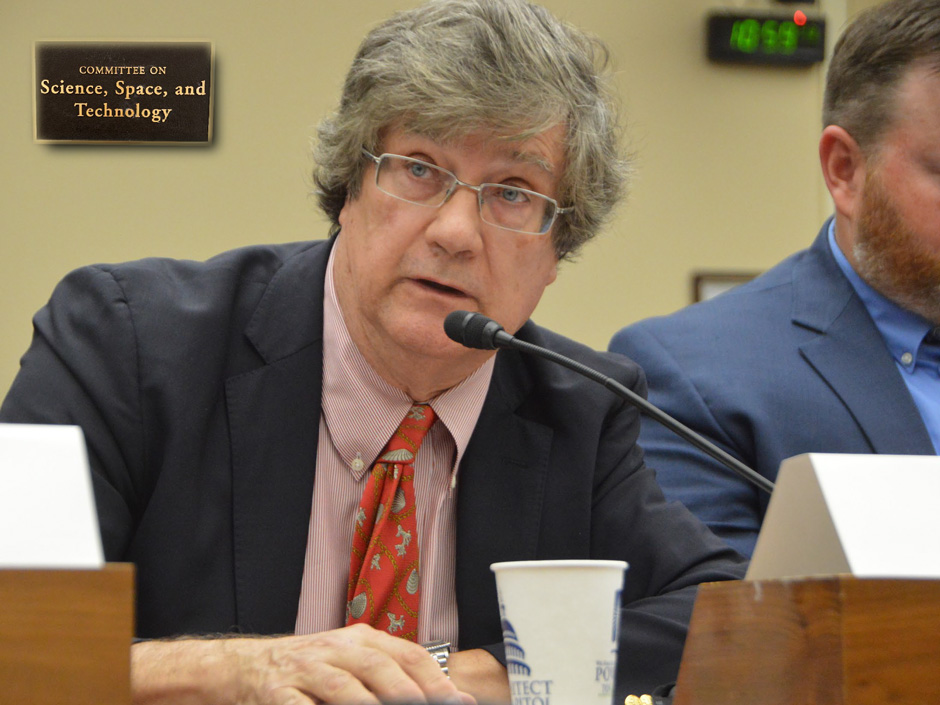Duality of Science: The Importance of Science Communication for Promoting Change
 Porter (left) and a colleague photographing a coral reef in Florida. (Photo Credit: Craig Quirolo)
Porter (left) and a colleague photographing a coral reef in Florida. (Photo Credit: Craig Quirolo)It is no secret that in today’s world, most scientists do not stick exclusively to science–they must be educators, communicators, and advocates. The looming threats facing the planet’s climate and the growing distrust in science by the public have forced scientists to expand and improve their capacity for science communication to the world.
From repeatedly testifying before the U.S. Congress to winning an Emmy as the Chief Scientific Advisor for an award-winning nature documentary, marine ecologist James W. Porter has been thrust into the public eye. Hailed as a “superstar scientist” by the Smithsonian Tropical Research Institute, Porter has used a lifetime studying coral reefs to bring the issues facing these havens of biodiversity to the forefront of conservation discussions.
After falling in love with marine ecology at Yale University, Porter began his career with the Smithsonian measuring coral growth. His research around Florida found widespread declining health and coral bleaching, and he became one of the first scientists to bring awareness to this problem.
He explains, “You start small, and you get large as the universe draws you more and more into your discipline.”
Porter attributes much of his success in promoting coral conservation to effective scientific communication.

Even while at sea, Porter takes the time to be interviewed by journalists. (Photo Credit: James W. Porter)
The Early Days of Coral Research
In 1991, Porter presented results from six monitoring stations showing that coral reefs around Florida were declining. Despite sharing the collected data and stark before and after pictures, his findings received little initial press coverage, and he found himself criticized by other scientists who were not convinced by the small sample.
However, Porter kept sharing his findings, bringing them to lawmakers and eventually getting a Floridian Congressman to push for expanded coral reef monitoring within the Florida Keys National Marine Sanctuary. After five more years of study, this time at 140 stations, Porter and his team again concluded that the health of coral reefs in Florida and around the world was in jeopardy.
“The reason that it didn’t matter whether you look in a small area or a large area for these phenomena, [is that] this was a global threat of climate change,” says Porter. “It wasn’t [that] a wayward vessel ran up onto a reef and, ‘oh dear, that reef has been destroyed.’ No, human beings ran up against the planet, and oh, the whole planet is being destroyed.”
With his passion for conservation and unwavering commitment to sharing his findings, Porter found himself a public figure for his knowledge on coral reefs. Porter claims that his use of imagery, simplification, and context when explaining the need to protect corals allows him to be an effective teacher for a wide range of audiences.

Porter being interviewed for the film Chasing Coral, in which he was Chief Scientific Advisor. (Photo Credit: Jeff Orlowski / Director of Chasing Coral)
Influencing the Public Through Science
His advocacy and public expertise on corals led to Porter testifying before Congress in 2019 about the global loss of diversity and the declining health of coral reefs. Congress has since signed the UN High Seas Treaty, which aims to protect at least 30% of the ocean by 2030.
Porter prepared for his speech by focusing on simplifying the topics he would be presenting without losing the facts and emphasizing the importance of corals in a context that spoke to the political goals of Congress. By explaining the economic benefits, medical uses, biodiversity, and climate resilience to be gained from conserving coral, Porter brought his research out of the lab and into the specter of public policymaking.
Understanding what your audience will tune in to is key to grabbing their attention, explains Porter. With Congress, he highlighted that in Hawai’i and Florida, reefs generate $60 billion annually. Moreover, the complex chemical makeup of corals can be used to produce new medications, such as a new drug that protects elderly patients from having a second heart attack.
“While the content of what you’re saying is important, it’s the context in which you put that information that allows people that are not in your discipline to remember it,” says Porter. “So what I did when I spoke all three times to Congress, I prepared by simplifying the statements as much as I could, by telling congressmen and women, not just, ‘what do you need to know?’ But, ‘why do you want to know this?’”
Outside the halls of the Capitol building, Porter has shared his coral research through film. A year before his Congressional testimony, he won an Emmy for advising the film Chasing Coral, which highlights the devastating impacts of coral bleaching from rising ocean temperatures.
The documentary has been on Netflix since 2017, garnering hundreds of thousands of views. It has also been shown at festivals and community screenings around the world.

Porter testifying before the Congressional Committee on Science, Space, and Technology in 2019. (Photo Credit: James W. Porter)
Working Through the Difficulties of Science Communication
Unlike other professors and researchers who lock themselves away in labs, prioritizing research over public outreach, Porter has continuously advocated the importance of communicating scientific research to the public. Porter recognizes the difficulties that come from sharing scientific research and results that are often very complex but believes that scientists sharing their work with the world is essential to creating change.
While the scientific process is detail-oriented and relies on the repetition of results to make conclusions, it is also still inherently uncertain. Porter believes that the lack of finality that comes with scientific hypotheses is a difficult but crucial aspect of science that must be emphasized.
Porter explains, “Both the glory and the excitement of science is not just in its certainty, but in its uncertainty.” He continues, “So one of the challenges of science communication is to deal with uncertainty.”
Porter explains that acknowledging this uncertainty while simultaneously instilling the value and impact of scientific evidence is what makes an effective science communicator.
“Science does not allow for fake news, even though it does allow you to change your story as the facts change,” says Porter.
Conclusion
With the environmental threats facing the planet, the need for science to be accessible to the public is paramount. Porter believes that the new generation of scientists must recognize the importance of their work, communicate productively, and remain optimistic.
While Porter recognizes that coral reefs are still suffering globally, he is also hopeful for the future. Between investigating heat shock-resistant proteins in corals to discovering deepwater areas less affected by warming ocean temperatures, he believes that corals can recover.
“We’re not at the point yet, where we are going to destroy our future,” says Porter. “There are so many advances in our knowledge, engineering, science, [and] ecology. And what we need to do is just share our joy, share our passion, and share our knowledge about the right way to do things.”




0 comments